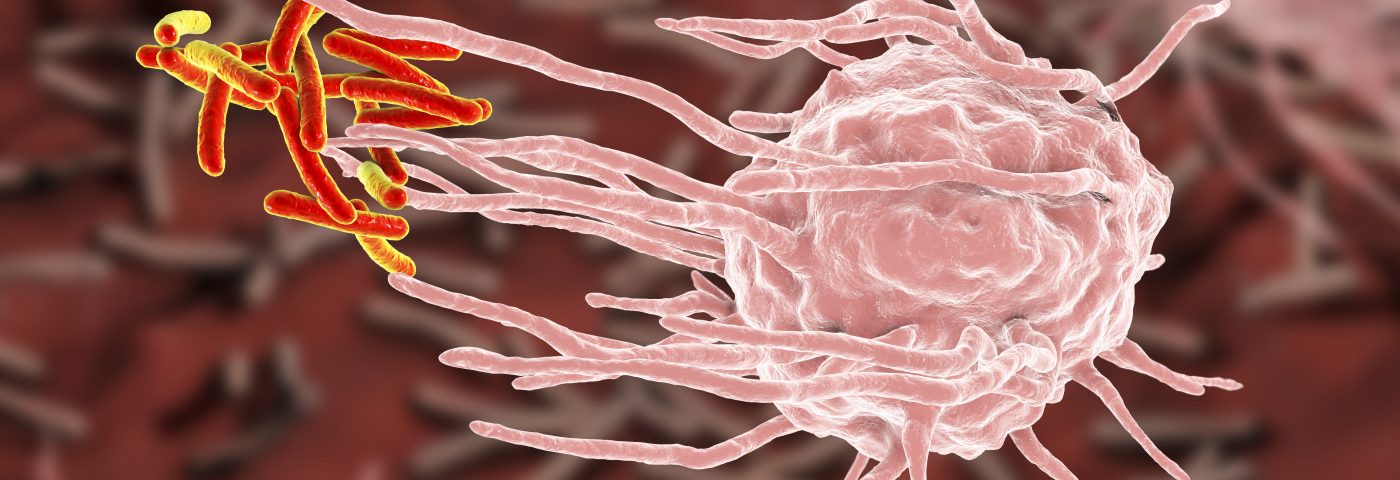Detection of specific genetic alterations and immunological biomarkers can help predict the response to QBECO SSI immunotherapy in patients with inflammatory bowel disease (IBD). This finding resulted from the analysis of Phase 2 trial data in ulcerative colitis.
QBECO SSI therapy was developed by Qu Biologics based on the company’s Site Specific Immunomodulators (SSIs) platform. This investigative immunotherapy was derived from inactivated components of E. coli bacteria in order to restore the innate immune response in the host’s gastrointestinal tract.
Compared to currently available immunotherapies, QBECO SSI does not inhibit the immune system, but reinitiates the normal immune function while clearing what triggers the disease.
Results from a QBECO SSIs Phase 2 trial (NCT02426372) in patients with moderate to severe ulcerative colitis showed 73% of patients who received the treatment achieved a meaningful clinical response, and 45% presented endoscopic healing within the first 16 weeks of treatment.
“For patients with IBD, including ulcerative colitis and Crohn’s disease, we are hopeful that these results mean that they may now be closer to having a treatment that restores rather than suppresses immune function,” Dr. Hal Gunn, CEO of Qu Biologics, said in a press release.
“Unlike current IBD treatments, which suppress the adaptive immune system and inflammation, QBECO SSIs target the upstream underlying genetic and immunological pathways of the disease, allowing personalized medicine to be applied in IBD for the first time,” he said.
Additional genetic and biochemical analysis showed that participants’ response to the treatment during the trial was associated with the presence of specific ulcerative colitis-related mutations.
These mutations were found to affect genes involved in the activation mechanism of the innate immune response and in the clearance of bacterial infections, which are the mechanism SSIs require to work.
The analysis also showed that the patients who responded to QBECO SSI treatment had higher levels of some signaling proteins that are involved in the normal immune response to bacterial infection.
A similar association between the signaling protein’s levels and responsiveness to treatment was observed in a previous QBECO SSI Phase 2 trial (NCT01809275) in patients with Crohn’s disease.
These data not only add new insights to the immunological mechanism of action of QBECO SSIs, they also demonstrate the involvement of innate immune response in IBD.
“The observation that QBECO SSI treatment shows a genetic link in IBD patients that is relevant to QBECO SSI’s immunological mechanism of action … is exciting in terms of what it informs us about the disease and QBECO SSI treatment,” said Dr. Shirin Kalyan, director of scientific innovation at Qu Biologics.
“These results highlight the potential of this new approach to treating ulcerative colitis by restoring rather than suppressing immune function,” Kalyan said.
Qu Biologics is planning to start a follow-up trial in Crohn’s disease patients during the first quarter of 2018. The study will assess the mucosal healing timeline with QBECO SSIs. It will also determine the predictive value of the identified genetic and biochemical biomarkers, and their correlation with treatment response.
“The ability to predict an IBD patient’s response to treatment would be an important turning point for patients with inflammatory bowel diseases and their healthcare providers who currently have to resort to trial and error in selecting treatments, which is often a burdensome exercise in terms of time, resources, disease symptoms and treatment side effects for all parties involved,” Gunn said.

